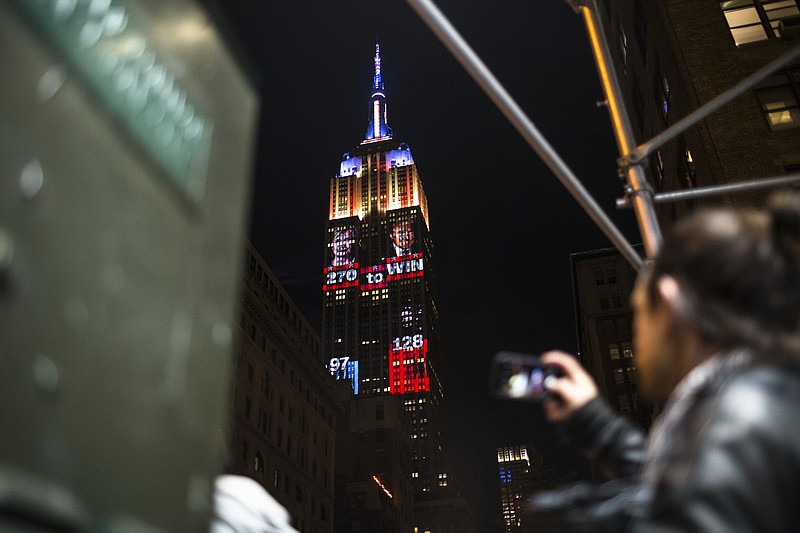Where it comes to the august duty of electing a president of the United States, the U.S. Supreme Court on Monday said electors must do what they pledge to do.
Heady stuff in this era where the rule of law means less and less to more and more people.
The unanimous 9-0 verdict by the justices - read that again, it may not happen often - said a group of Democratic electors were wrong in wandering off on their own in 2016 in an effort to convince Republican electors not to vote for then President-elect Donald Trump and deny him an Electoral College majority.
"The Constitution's text and the Nation's history," wrote Justice Elena Kagan, "both support allowing a State to enforce an elector's pledge to support his party's nominee - and the state voters' choice - for President."
Democrats desperately hoped the ruling would allow electors to be free agents, perhaps paving the way for getting rid of the Electoral College - and going with straight popular vote - as the final arbiter in the election of a president.
They hoped justices would consider that four times in the country's history, but twice in the past 20 years, the candidate with the most popular votes - including Democrat Hillary Clinton in 2016 - did not win in the Electoral College.
In the 32 states and the District of Columbia in which some sort of pledge is elicited from electors in advance about their duty, generally, the elector promises to support the party nominee if that nominee wins a majority of the popular vote in the state. Then, the winning party appoints its electors, and the electors are expected to vote for the party nominee. Any elector who fails to vote in accordance with their pledge faces consequences such as civil fines and dismissal as an official elector.
After the 2016 contest, electors in Washington and Colorado sued their individual states upon being sanctioned following their "faithless" votes. Three Washington electors voted for Colin Powell and were fined $1,000 each, and the Colorado elector tried to vote for then-Ohio Gov. John Kasich but was removed immediately. Eventually, courts ruled on both sides, making it a perfect issue for the Supreme Court to decide.
Essentially, the court decided two cases, both unanimously, upholding the Washington State Supreme Court opinion that said electors must vote as they pledged to vote and overturning the 10th Circuit Court of Appeals ruling in the Colorado case that said states could not enforce pledges by electors.
The verdict forbids electors from voting for someone other than the winner of the popular vote in that state if they have pledged to do so.
In oral arguments by telephone because of the coronavirus outbreak in May, Justice Samuel Alito gave voice to what might happen if all the electors were free agents.
The possibility of "changing just a few votes" in the Electoral College would rationally "prompt the losing party ... to launch a massive campaign to try to influence electors," he said, "and there would be a long period of uncertainty about who the next president was going to be."
In 2016, there were 10 "faithless electors," giving rise to the possibility of even more stirring in this fall's election in which 270 electoral votes are needed to win and prompting the need for a decision on the issue.
Indeed, Colorado, in its case, asked that the court not wait to rule until "the heat of a close presidential election."
"Among the devices States have long used to achieve their object are pledge laws, designed to impress on electors their role as agents of others," Kagan ultimately wrote. "That direction accords with the Constitution - as well as with the trust of a Nation that here, We the People rule."
Justice Clarence Thomas, in a concurring but separate opinion on the case that was joined by Justice Neil Grouch, said "nothing in the Constitution prevents States from requiring Presidential electors to vote for the candidate chosen by the people."
We hope this portends the end of any future tinkering with the Electoral College. The Founding Fathers installed it as a mechanism to keep the most populous states from having outsized influence over smaller states in presidential elections, and that's exactly what many of the large states would like to have today.
We believe the country's founders exercised great wisdom in designing this system and that it continues to serve the nation well.
